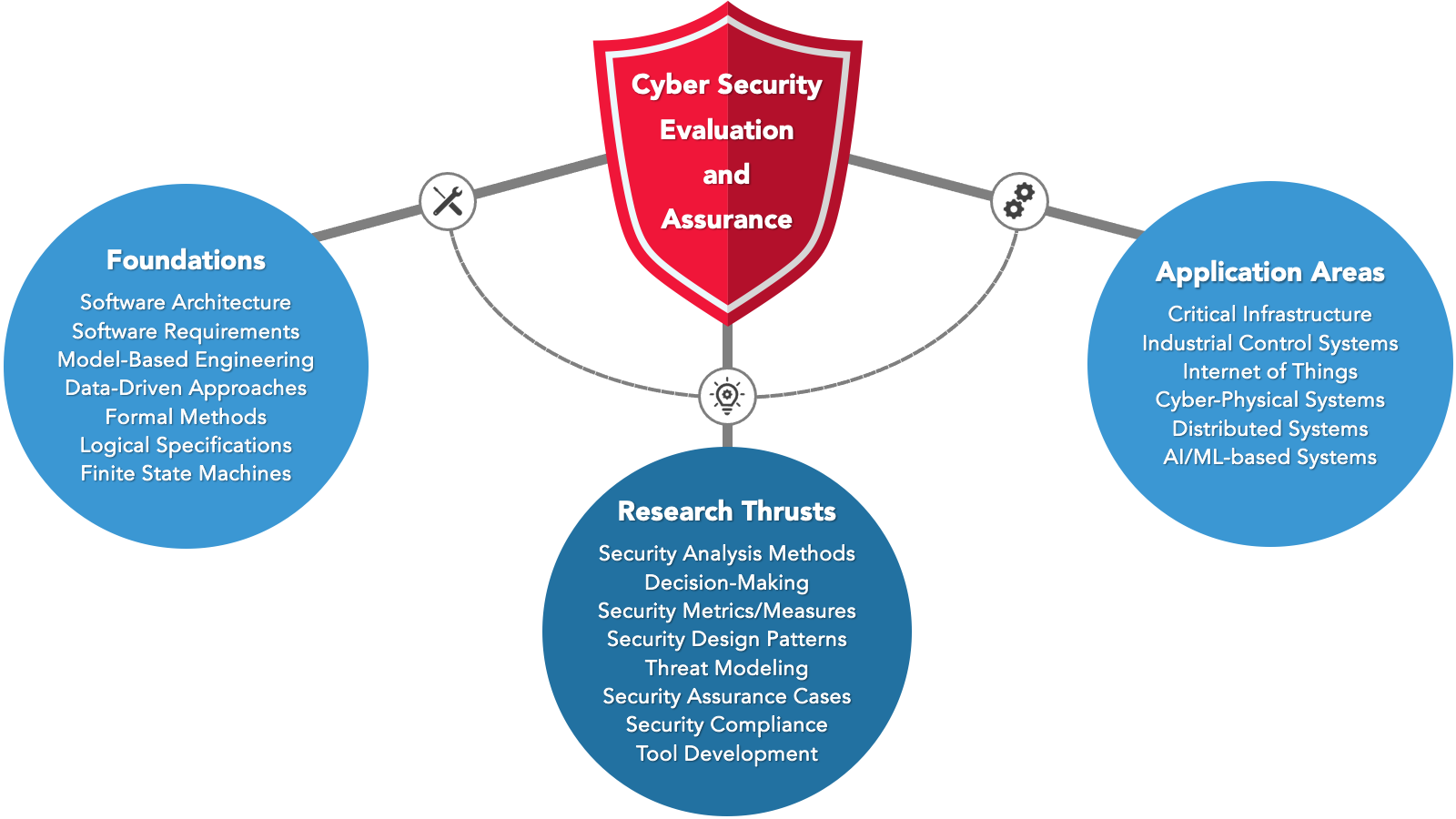Research
The Cyber Security Evaluation and Assurance (CyberSEA) Research Lab conducts advanced academic research to develop systematic and rigorous approaches for evaluating and assuring the cyber security of software-dependent systems.

Research Overview
There is an ever-growing need to assure the security of critical software-dependent systems, and the information that they use, store, and communicate, in the face of cyber-attacks and failures. As systems grow larger and more complex they invariably become more susceptible to an array of unforeseen security vulnerabilities. Security should therefore be considered at all stages of their development. The current approach of having security retrofitted or “bolted-on” to the systems that we build is not sufficient. Instead, we need to consider the increasingly critical security requirements for these systems and design them with security “baked-in” so that the evidentiary basis for security assurance can be generated and reasoned about alongside the system it supports. This presents a range of complex challenges.
The CyberSEA Research Lab is motivated by the need for the advancement of rigorous and practical approaches to address increasingly critical issues in designing, implementing, evaluating, and assuring the safe, secure, and reliable operation of software-dependent systems. To this end, we conduct research that spans the areas of cyber security, software and security engineering, model-driven engineering, formal methods, and data-driven approaches. We explore new ideas, techniques, and tools that can support cybersecurity evaluation and assurance activities and advance security-by-design approaches leading to improved system security and higher system confidence.
Areas of Application
We focus on applying these approaches in a variety of applications areas including, but not limited to, critical infrastructure (e.g., maritime port systems and operations, smart energy grids/infrastructures), industrial control systems, cyber-physical systems, IoT-based systems, AI/ML-based systems, and more.